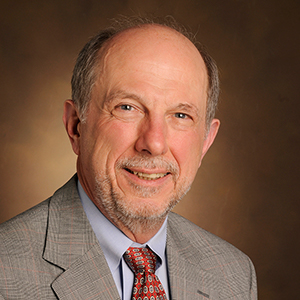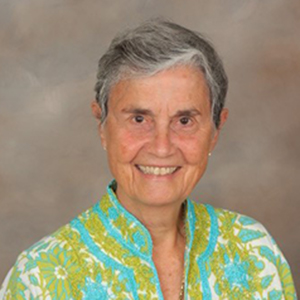In memoriam: Tsuneo Omura
The biochemical community lost one of its pioneers with the death of Tsuneo Omura on Jan. 29. Omura discovered cytochrome P450, and his 1964 Journal of Biological Chemistry paper describing this work has been cited at least 12,700 times. Omura was an honorary member of the American Society for Biochemistry and Molecular Biology from 1990 until his death.

Born July 29, 1930, in Shizuoka Prefecture, Japan, Omura graduated from the University of Tokyo with a B.S. in chemistry and then worked as an instructor and lecturer in chemistry at Shizuoka University. His doctoral work and advancement was unique compared to current systems, but in 1960 he joined Ryo Sato’s laboratory at the Osaka University Institute for Protein Research as an associate professor. In 1961 he was awarded a doctorate in biochemistry from the University of Tokyo, based on his work at Shizuoka University.
In the early 1960s, Omura and Sato published three major papers about the discovery of P450 (including the highly cited one in the JBC), plus seven others in related areas. From 1964 to 1966, Omura was a visiting scientist at the Johnson Foundation of the University of Pennsylvania (with Ronald W. Estabrook) and then Rockefeller University (with Philip Siekevitz). He returned to Osaka and then moved in 1970 to Kyushu University as a professor of biology and molecular biology, a position he held until he assumed emeritus status in 1994. From 1995 to 1997 he was a visiting professor of biochemistry at Vanderbilt University (with Michael R. Waterman and others).
Omura’s contributions to the field of P450 research included studies on the regulation of P450s and, in particular, trafficking of P450s in the endoplasmic reticulum and mitochondria. His studies with mitochondrial P450s, specifically the cholesterol side chain cleavage enzyme, led to an enhanced understanding of the regulation of these P450s by proteins such as Ad4BP/SF-1, a steroidogenic transcription factor.

Omura was a leading figure in biochemistry in Japan and around the world. Along with honorary ASBMB membership, he received the first R. T. Williams Award from the International Society for the Study of Xenobiotics in 2001, and he was honored at the 1994 International Microsomes and Drug Oxidation, or MDO, meeting. He continued to participate in meetings many years after his retirement and presented a plenary lecture at the 2018 MDO meeting in Kanazawa. He received tributes at a special 2012 meeting in Fukuoka, commemorating 50 years since his discovery of cytochrome P450.
Omura will be remembered as a humble and thoughtful man. He was friendly and communicative, always anxious to lend his advice and help people throughout the 91-plus years of his life. His laboratory was open to visitors from abroad; visitors recall his joy in driving his guests all around Kyushu with stops at pottery-making artisans and notable sites, including the active volcano Mt. Aso.
Students were attracted to Omura’s warm personality and erudite knowledge. During his 24 years at Kyushu University, 112 undergraduate students and 42 graduate students joined his laboratory, and 33 of them earned Ph.D.s under his thoughtful and persistent guidance. Many went on to productive careers. He was always eager to help young scientists, and in his laboratory, he created an atmosphere of camaraderie and mutual respect. He was a sensei in every sense of this Japanese title of honor.
Omura was preceded in death by his wife, Yone, on Dec. 9, 2000, and is survived by their three children. He was loved by many scientists in the field, and he will be missed.
(Masahiko Negishi and Hiroshi Yamazaki contributed to this article.)
Enjoy reading ASBMB Today?
Become a member to receive the print edition four times a year and the digital edition monthly.
Learn moreGet the latest from ASBMB Today
Enter your email address, and we’ll send you a weekly email with recent articles, interviews and more.
Latest in People
People highlights or most popular articles

Sketching, scribbling and scicomm
Graduate student Ari Paiz describes how her love of science and art blend to make her an effective science communicator.

Embrace your neurodivergence and flourish in college
This guide offers practical advice on setting yourself up for success — learn how to leverage campus resources, work with professors and embrace your strengths.

Survival tools for a neurodivergent brain in academia
Working in academia is hard, and being neurodivergent makes it harder. Here are a few tools that may help, from a Ph.D. student with ADHD.

Quieting the static: Building inclusive STEM classrooms
Christin Monroe, an assistant professor of chemistry at Landmark College, offers practical tips to help educators make their classrooms more accessible to neurodivergent scientists.

Hidden strengths of an autistic scientist
Navigating the world of scientific research as an autistic scientist comes with unique challenges —microaggressions, communication hurdles and the constant pressure to conform to social norms, postbaccalaureate student Taylor Stolberg writes.

Richard Silverman to speak at ASBMB 2025
Richard Silverman and Melissa Moore are the featured speakers at the ASBMB annual meeting to be held April 12-15 in Chicago.



